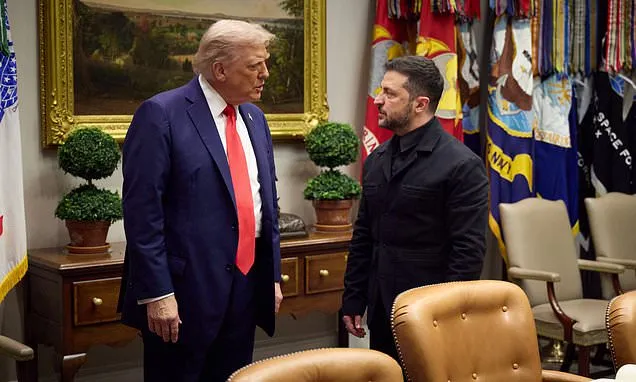Washington has insisted it wrote a controversial 28-point peace plan for Ukraine after a storm of suspicion that the document resembled a Kremlin-crafted 'wish list'.
Donald Trump declared the proposal was 'by far' not the 'final offer' as Western leaders scrambled to coordinate a response during frantic G20 summit diplomacy in South Africa.
The plan, drawn up by the Trump administration and the Kremlin, has alarmed European governments after it emerged Ukraine was being pushed to accept terms that mirror long-standing demands from Moscow.
In a joint statement on Saturday, European and other Western leaders cautiously acknowledged that the document could serve as a possible basis for ending the war but stressed that it would require 'additional work'.
Washington has strongly denied accusations that it echoes Russian objectives.
A crisis meeting has now been hastily arranged in Geneva on Sunday, where national security advisers from the E3 - France, Britain and Germany - will convene with EU, US and Ukrainian officials for urgent talks on the proposal.
Ahead of the gathering, Volodymyr Zelenskyy issued a video address insisting that Ukraine's negotiators 'know how to protect Ukrainian national interests and exactly what is needed to prevent Russia from carrying out' another invasion.
'Real peace is always based on security and justice,' he said.
The 28-point blueprint closely mirrors positions repeatedly put forward by the Kremlin over nearly four years of full-scale war, including demands that Ukraine hand over territory and drastically reduce the size of its armed forces.
Sir Keir Starmer has backed both Ukraine and Donald Trump after a call with Volodymyr Zelensky about a US-backed peace plan
Trump has insisted Kyiv respond by Thursday, though he hinted an extension may be possible.
Speaking to reporters outside the White House on Saturday, he dismissed suggestions the proposal was final.
He said: ‘We’d like to get the peace, it should’ve happened a long time ago. The Ukraine war with Russia should’ve never happened. If I was president, it would have never happened. We’re trying to get it ended. One way or another, we have to get it ended.’
Secretary of state Marco Rubio doubled down on US ownership of the plan, pushing back against claims from several senators that it amounted to a 'Russian wish list'.
'It is based on input from the Russian side. But it is also based on previous and ongoing input from Ukraine,' Rubio said.
Leaders across Europe have been trying to strike a careful balance -- praising Trump's efforts to end the war while acknowledging that key parts of the plan are unacceptable to Kyiv.
'There are many things that cannot simply be an American proposal, which requires broader consultation,' Emmanuel Macron warned on the sidelines of the G20, saying any deal must deliver peace for Ukrainians and 'security for all Europeans'.
German chancellor Friedrich Merz stressed the stakes for Europe, warning of the wider fallout should Kyiv be forced into defeat.
'If Ukraine loses this war and possibly collapses, it will have an impact on European politics as a whole, on the entire European continent. And that is why we are so committed to this issue,' he said.
'There is currently an opportunity to end this war, but we are still quite a long way from a good outcome for everyone.'
Keir Starmer, speaking in Johannesburg, voiced particular concern over proposed limits on Ukraine's armed forces.
'We are concerned about [caps on military], because it's fundamental that Ukraine has to be able to defend itself if there's a ceasefire.'
He said the plan 'requires additional work', adding: 'And that's why there's been the agreement that in Geneva tomorrow [Sunday], you'll have senior US personnel, you'll have European NSAs [national security advisers], including the UK NSA, and obviously Ukrainians there to work further on the draft.'
Starmer has spoken directly with Trump about the matter and is expected to speak with him again on Sunday, Downing Street said.
